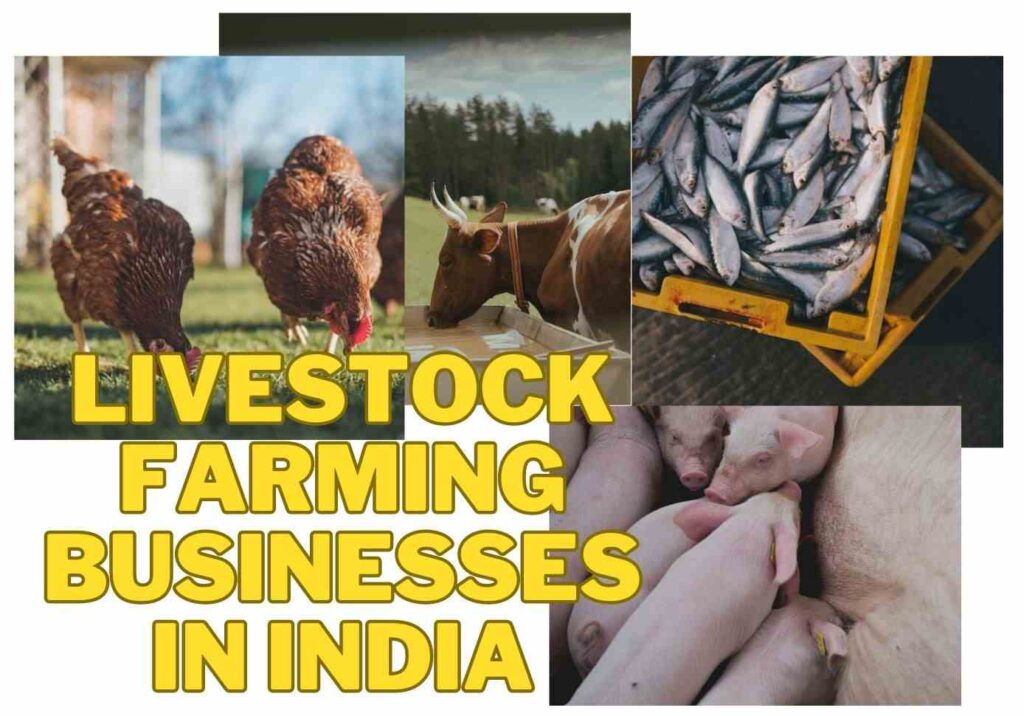
Cultivating Prosperity: Exploring Livestock Farming Businesses in India

India’s vast agricultural landscape holds immense potential for entrepreneurs looking to make a profit while contributing to the nation’s food security and economic growth. Livestock farming, in particular, opens doors to a myriad of lucrative prospects, meeting the increasing demand for meat, milk, eggs, and other animal-derived products.
1. Dairy Farming
Dairy farming stands as a cornerstone of India’s rural economy, with millions of households engaged in milk production. Establishing a dairy farm can be a profitable venture, providing a steady income stream and contributing to the country’s dairy needs.
Breeds Selection: Choose suitable dairy breeds, such as Holstein Friesian, Sahiwal, or Jersey, based on local adaptability, milk production potential, and disease resistance.
Animal Welfare: Prioritize animal welfare practices, ensuring proper nutrition, housing, and veterinary care to maximize milk production and animal health.
Value-Added Products: Explore value-added products like ghee, paneer, cheese, or yogurt to increase revenue and cater to diverse consumer preferences.
2. Poultry Farming
Poultry farming involves raising chickens for meat and eggs, offering a relatively low-investment venture with a quick turnaround time and high returns.
Commercial Broiler Production: Raise broiler chickens for meat, focusing on efficient growth, feed conversion, and disease prevention.
Layer Farming: Produce eggs for the table egg market, ensuring proper housing, nutrition, and lighting for optimal egg production.
Specialty Poultry: Explore niche poultry breeds, such as ducks, turkeys, or quail, to cater to specific market demands and premium pricing.
3. Pig Farming
Pig farming proves to be a profitable venture due to the high demand for pork products and the relatively low cost of feed.
Breed Selection: Choose suitable pig breeds, such as Large White Yorkshire or Desi pigs, based on adaptability, growth rate, and meat quality.
Biosecurity: Implement strict biosecurity measures to prevent diseases and ensure animal health.
Value-Added Products: Explore value-added products like bacon, ham, sausages, or pork cuts to increase revenue and cater to diverse consumer preferences.
4. Goat Farming
Goat farming offers a sustainable livelihood option, especially in arid and semi-arid regions where goats thrive.
Breed Selection: Choose suitable goat breeds, such as Jamnapari, Black Bengal, or Sirohi, based on adaptability, milk production, and meat quality.
Forage Management: Ensure a year-round supply of quality forage to meet the nutritional needs of goats and optimize milk production.
Value-Added Products: Explore value-added products like goat cheese, goat milk, or goat meat delicacies to increase revenue and cater to diverse consumer preferences.
5. Aquaculture
Aquaculture involves the farming of fish, shrimp, and other aquatic organisms, representing a growing industry with immense potential for sustainable food production.
Species Selection: Choose suitable aquaculture species, such as carp, catfish, prawns, or oysters, based on local suitability, market demand, and environmental considerations.
Pond Management: Implement proper pond management practices, including water quality monitoring, stocking density, and feed management.
Value-Added Products: Explore value-added products like fish fillets, shrimp packages, or value-added fish preparations to increase revenue and cater to diverse consumer preferences.
Additional Considerations for Livestock Farming Success
Market Research and Demand Analysis: Conduct thorough market research to identify profitable livestock products and target consumer segments.
Financial Planning and Investment: Develop a comprehensive business plan, including financial projections and investment strategies.
Government Regulations and Compliance: Adhere to all applicable government regulations, licensing requirements, and veterinary health standards.
Technology Adoption and Innovation: Embrace technology-based solutions for efficient feed management, disease monitoring, and herd management.
Sustainable Practices and Environmental Consciousness: Implement sustainable practices to minimize environmental impact and ensure long-term viability.
Livestock farming, when done responsibly and sustainably, can be a rewarding and profitable venture, contributing to food security, rural livelihoods, and the overall economic growth of India.




